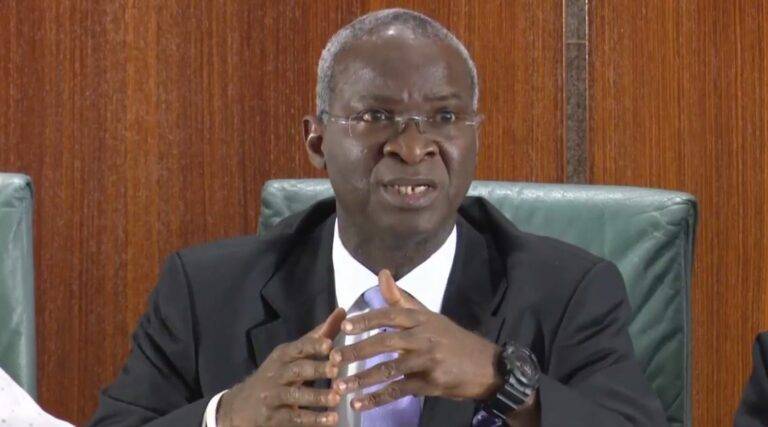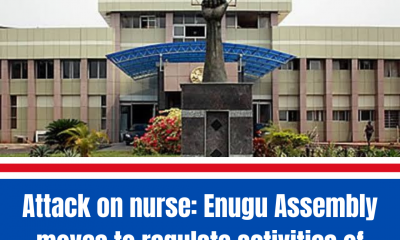News
Nigeria’s 15.8% stake in Shelter Afrique now valued at over $30m – Fashola

Fashola said this in his opening remarks during the 42nd Annual General Meeting/ Symposium of Shelter Afrique, in Abuja, on Monday.
Shelter Afrique was a company set up with the aim of financing affordable housing for Africa.
The minister explained that from a contribution of $5.9 million in 2016, $9.3million in 2020 and another &7.1 million in 2022, Nigeria’s total contributions totaled $22.5 million.
Fashola said, “This brings Nigeria’s shareholding in the company to 15.80 percent (now) valued at $30,724,961.00.
“For a company that was struggling for funding in 2016, this was a much-needed injection of life-restoring capital and I must say that other member states have responded in kind.
“Beyond financial capital, Nigeria has also contributed the most important capital – The human capital, by offering Mr. Femi Adewole, to provide interim leadership for the company at perhaps its most turbulent period.
“With this background as we convene today I can say with a measure of confidence that for Shelter Afrique, the dark clouds are gone, and a bright new future of renewed hope lies ahead, especially with the leadership provided by our company’s Board and management led respectively by Dr Chii Akporji and Mr Thierno-Habib Hann.
“On the domestic front, I am also pleased to report an increasing private sector participation in the delivery of an assortment of housing types for low- and high-income demand.
“With their control over land, within our Federal constitutional arrangement, State Governments are playing their roles in the supply of housing from Abia to Zamfara.
“These contributions to increasing housing supply are complemented by the Federal Government with initiatives such as the National Housing Programme that has delivered houses across 35 states and the Federal Capital Territory Abuja, complemented by the Federal Housing Estates across our six geo-political zones, and the Federal Mortgage Bank, Ministerial housing scheme and Co-Operative Housing initiatives across the 36 states of our country.”
He further said, “By the collective action of our member states and our development partners, we have surmounted very difficult challenges, some of which threatened the continued existence of our company.
“With every sense of modesty I am happy to announce that my country, the Federal Republic of Nigeria, has played a commendable role in that collective action.
“Let me report some policy and process reforms that have been initiated or implemented since 2016.
“One of them is the removal of the condition for a 10% equity contribution by a mortgage applicant from the Federal Mortgage Bank for a Mortgage of N5 Million and below; and the reduction of the 15% equity contribution to 10% for mortgage applicants over N5 Million.
“This has helped to remove and reduce some of the barriers for access to funding for housing purposes.
“Because access to land is also critical to complement funding, between the period 2016 and today, we have undertaken and completed a full digitization of the Federal Lands Registry.”
Speaking earlier, Chairperson of the Board of Directors of the company, Dr. Chii Akporji, said, “Despite the global economic slowdown, 53 of Africa’s 54 countries posted positive growth. The growth of the economy in Sub-Saharan Africa was expected to slow down from 4.1 percent the year before to 3.3 percent.”
According to her, despite the numerous challenges, this period presented, SHAF’s resilience continued to show with multiple housing projects funded and commissioned across the continent.
Speaking in the same vein, the Managing Director of the company, Mr. Thierno-Habib Hann, said, “We are currently navigating a period afflicted with global recession while nations are reeling from shocks in geopolitics, energy and economics.
“So, we need to turn our attention to the dynamics of the African housing market.”
-

 Politics6 days ago
Politics6 days agoSouth-South Govs Meet In Yenagoa, Urge FG To Review Power Situation
-

 Politics7 days ago
Politics7 days agoKogi gov, Ododo used immunity to protect Yahaya Bello from EFCC arrest – Oshiomhole
-

 Business6 days ago
Business6 days agoWhy CBN Banned Opay, Palmpay, Kuda Bank, Moniepoint From Boarding New Customers
-

 Entertainment7 days ago
Entertainment7 days ago‘Disrespectful’ – Mr Macaroni slams Wizkid for shading Don Jazzy
-

 Niger Delta6 days ago
Niger Delta6 days agoRE: PROTEST AGAINST PAP BOSS DR DENNIS OTUARU, AN UNNECESSARY DISTRACTION THAT SHOULD NOT BE TAKEN SERIOUSLY.
-

 News3 days ago
News3 days agoAttack on nurse: Enugu Assembly moves to regulate activities of masquerades
-

 Politics6 days ago
Politics6 days agoFormer IYC Scribe Congratulates Hon. Maxwell Ebibai on Reappointment as Bayelsa Commissioner for Finance.
-

 Politics6 days ago
Politics6 days agoHon. Alapala Felicitates with Commissioners for successful inauguration and thank the governor for their appointments.




